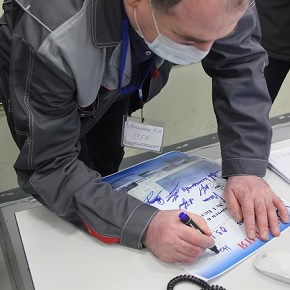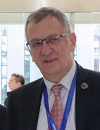Victor Murogov
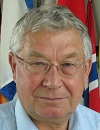 Global Analysis of Basic Problems of Full-Scale Nuclear Power
Global Analysis of Basic Problems of Full-Scale Nuclear Power
This critical analysis of the history, state, and prospects of development of modern nuclear technologies shows that nuclear energy market has practically monopolized the design and construction of only one type of reactors (95% of NPPs under construction use pressurized water reactors), which necessitates training of focused specialists involved in the construction and operation of those nuclear power plants.
One can say that the nuclear industry got engaged in premature capitalization of reactor science that was not properly developed, at a too infant age. We hurried to force nuclear power into the locomotive level of thermodynamics, working at the lowest parameters in modern power industry.
As Academician Pyotr L.Kapitsa wrote in 1955, it is impossible to create competitive new nuclear power units without changing the scientific and technical principle of converting nuclear energy into electric energy.
Achieving a full-scale level of nuclear power, capable of solving social, economic and environmental challenges...
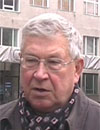 Victor Murogov: Theses of simplified analysis
Victor Murogov: Theses of simplified analysis
If we talk about the history of the nuclear science and technology, which determined the creation and the development of nuclear weapons and, then, nuclear power, we must return more than 100 years ago, in the early 20th century.
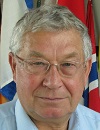 New Book of Victor Murogov
New Book of Victor Murogov
Owing to lucky stars the author has the opportunity to be involved in the processes reflected both from inside, having worked his way up from a research officer to the head of the country largest research center, i.e. SRC RF IPPE (Institute of Physics and Power Engineering, Obninsk) and outside, working as one of IAEA senior officials in Vienna, Austria (International Atomic Energy Agency, a worldwide governmental UN organization in charge of peaceful development of nuclear technology and science). Accordingly, the collection contains the following sections indicative of the author interests and views:
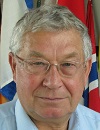 Victor Murogov: Shift in Priorities
Victor Murogov: Shift in Priorities
We observe the loss of knowledge which is not used. In the nuclear sector, it is reactor technologies that suffer most of all from this. Russia's construction of reactor BN-800 is an example of the preserved knowledge on fast sodium-cooled reactors but, unfortunately, this is unique experience.
Thus, it became the basis for another priority trend of the IAEA activity - Nuclear Knowledge Management (NKM), which is the theme of the primary resolution of the General Conference 2002 and a subject-matter of the first international conference on NKM in the IAEA in 2004.
The tasks were specified. There was only one problem: lack of resources. The IAEA budget is drawn up for two years. Even if you convince the Director General of the necessity to develop this or that project, he would not be able to help you until a new budget is passed.
For such cases, non-budgetary funds are envisaged. If a country finds the work in question important, it can make an extra contribution.
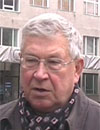 IAEA International Project on Innovative Nuclear Reactors and Fuel Cycles (INPRO). Scientific-Technical Reminiscences.
IAEA International Project on Innovative Nuclear Reactors and Fuel Cycles (INPRO). Scientific-Technical Reminiscences.
One could see that the third item corresponds to the third task specified by the IAEA Secretariat for INPRO. However, the INPRO limitation by that task as the primary objective from the very beginning was turning INPRO into an appendage to the GIF-4 Project, which was intensely lobbied by the US starting from 2000 (via NEA - Nuclear Energy Agency - as an analogue of the IAEA Secretariat). We were of the opinion, that both projects - INPRO and GIF-4 - should complement each other and should have a common strategic mission: evaluation and feasibility of full-scale development of nuclear power in the future. INPRO could be responsible for conceptual requirements for nuclear power (NPPs and NFCs) while GIF-4, for particular fulfillment of those requirements. All this demands equal support for both projects from leading nuclear nations - donors of innovative technologies. We told Mr. Moniz just about it. And in the future things went on exactly this way. Instead of antagonism, we achieved close interaction and consolidation of political and coordination committees for better exchange of information. More than that, after the Project had been entered into the regular program, representatives of leading nuclear (including western) nations headed the INPRO Section.
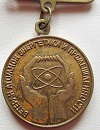 Nuclear Veterans for the Future
Nuclear Veterans for the Future
Whom should we call veterans? It is a good question. At present, we are shifting the center of gravity to persons being prepared for retirement. They still have powder in the powder-horns, they worked under market conditions, and we are going to involve them in the veteran movement.
Do all veterans are anxious to share their knowledge with young people? I can answer this question. We haven't witnessed mass rejection on the part of veterans since the Union foundation. There was no fear of knowledge transfer. On the contrary, we saw the support of our ideas and the desire for consolidation.
Of course, there were cases when we heard something like - Don't bother me; I am not going to share knowledge with anyone because you'll fire me thereafter as not wanted. But when we started to talk to such people, to explain to them our aims and purposes, the negative attitude vanished, and those people became our partners.
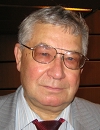 History of the Creation of the International Union of Veterans of Nuclear Energy and Industry (IUVNEI)
History of the Creation of the International Union of Veterans of Nuclear Energy and Industry (IUVNEI)
The initiative to found the IUVNEI was supported by the nuclear community.
A vast and varied experience has been accumulated in all the development stages of nuclear power engineering, starting from the task assignment, upon that each country solved it in its own way, that is why the achievements and failures are so peculiar for each country. In addition, taking into account the traditional closed nature of the industry, few of them have become a property even of specialists.
In the context of the renaissance of nuclear power engineering development in the 20 century it is very important to collect, compile, and distribute all the positive and negative experience mainly in the countries which have never been involved in this industry and, therefore, having no scientific and educational base.
At the present time, taking into account the generation gap, only veterans who have passed all the development stages of the industry, in each country under different starting, economical, and political conditions, are able to compile and transfer this experience to the new generation.
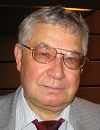 The ISTC Responsible Science Program and Subprogram Culture of Nuclear Nonproliferation
The ISTC Responsible Science Program and Subprogram Culture of Nuclear Nonproliferation
The dual-use nature of nuclear technology consisting in the potential for its application equally in peaceful and military sphere is the basic contradiction for the existing nuclear nonproliferation regime and comprehensive development of the nuclear power and nuclear fuel cycle.
The associated antagonism between the need for the development of civil nuclear power, extension of countries range and areas of peaceful application, on the one hand, and the risk of transferring nuclear technologies and fissile materials that could be applied in the military sphere, on the other hand, defines the principal threat to the nonproliferation regime.
Moreover, the tension of the situation in nuclear nonproliferation at the beginning of the new millennium coincided with a new cycle of renewed interest to nuclear power as well as to plans and efforts focused on further development of innovative technologies (small-size nuclear power plants for developing countries, breeder reactors with closed nuclear fuel cycle with reprocessing and recycling of fissile materials, high-efficiency technology of centrifugal enrichment, etc.)...
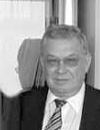 Victor Murogov: work on preservation of nuclear knowledge continues
Victor Murogov: work on preservation of nuclear knowledge continues
I take part in realization IAEA's program for preservation of nuclear knowledge, which we have begun yet at that time when I was IAEA Director General Deputy - in 2001. This program was arisen in accordance with the proposal of developing countries under support of the West states, and now it is at the final stage of realization.
IAEA issued a set of reports containing the opinions of scientists about why it is necessary to take care of knowledge preservation just in nuclear power. Now the search of consensus is going regarding to understanding what namely should be preserved and how it is necessary to do it.
If to tell about the first item of work (why the nuclear knowledge deserves special concern) the corresponding guidance about specificity of nuclear knowledge was prepared by IAEA. It says about necessity of nuclear knowledge preservation for successful operation of NPP, for industry and nuclear safety.

